|
The best thing about being a parent is finding joy in the moments that your child is laughing, playing, and having fun. It’s joyous and fulfilling; and there is no greater feeling. There are other times when parenting is hard--full of so many sacrifices and tough decisions that make it feel like the farthest thing from a perfect scenario. My toddler is two years old and pretty expressive about what he wants and needs. His favorite phrases right now are: “I want fruit snacks” and “New truck show.” Depending on the answer to his requests, he’s either overjoyed or devastated. He will curl into a ball with his head on the floor at my feet or just burst out into a shrieking scream of anger. I think for most parents, it’s hard to see your child struggle. While it’s important for him to learn lessons like “not-right-now,” teaching him and working through these times of struggle are not fun parts of the vocation. I’d like to think that God, our very compassionate, perfect Father, watches over us in our many struggles and is the kind of parent beside us in our tantrums, too. The weight of parenthood doesn’t affect our Father. Instead, he is the one who strengthens us, the stressed-out parents, when we ask for his help in prayer and let him in.
Jesus is the Son of the Father. When he taught his disciples to pray, he gave us the Our Father prayer. In each of these lines, we can find solace in praying to our Father in heaven. There is such beauty in the words from Christ that capture every essence of our Gospel. Our Father, Who art in heaven, Hallowed be Thy Name. Thy Kingdom come. Thy Will be done, on earth as it is in Heaven. Give us this day our daily bread. And forgive us our trespasses, as we forgive those who trespass against us. And lead us not into temptation, but deliver us from evil. Amen. Let’s go through the prayer and break it down a little more:
By the end of the Lord’s Prayer, I see a loving, forgiving, and omnipotent parent. I feel like God is supporting me and guiding me. He is inviting me to have faith in what he wants for me and my life. The Our Father also reminds me to be grateful each day, to forgive others, and to allow myself to be forgiven, most importantly in Confession. A parent’s life is sometimes consumed by their child or children. With God’s help, we can live out our vocations as parents by looking to his example of Fatherhood. God in His Wisdom created us to be His. He made us unique, with a capacity to love and with Free Will. He made us to be thinkers and creators. He loves us so much that he brought his Son into the world to die for our sins and then be able to live with him eternally. I can’t imagine a more perfect parent than that.
0 Comments
Sometimes sanctity feels like an impossible goal. I can admire and love the holiness of the saints but, like the achievement of the professional athlete or Nobel prize winner, I know that it is not something readily within my reach. It seems to be a rare gift or a special privilege, so it is easy to console myself with the seemingly humble admission of how far I fall short of such a lofty ideal. Being a saint is a gift and a privilege, so we would be right to attribute such holiness to God’s grace! But drawing closer to the saints themselves reveals something more about holiness and the quiet daily struggle of love. Saint John Eudes, whose Memorial we celebrate today, is remembered chiefly for his devotion to the hearts of Jesus and Mary. But this devotion wasn’t an abstract concept or merely a personal predilection. It was a concrete way of expressing God’s transformation and transfiguration of humanity through the event of the Incarnation. And in the image of the heart, the fullness of human sanctity is revealed. Saint John Eudes, like so many other saints, wrote many wonderful spiritual works. What stands out in his thought, however, is the intertwining of a meditation upon the holiness of Christ’s life and the necessary holiness of life to which all Christians are called. If I feel intimidated by the holiness of the saints, then I feel infinitely more intimidated by the challenge of truly imitating Jesus’ life! And yet that is exactly what Saint John Eudes encourages us to do. Union with Christ through faith and the sacraments is not a nice sentiment or empty metaphor, but rather a concrete connection to the reality of his Incarnate life. Taking inspiration from Saint Paul’s affirmation that “in my flesh I am filling up what is lacking in the afflictions of Christ on behalf of his body, which is the Church,” (Col 1:24), Eudes argues that every Christian is joined to Christ’s life in a similar way through grace: “Thus, when a Christian prays, he continues and accomplishes the prayers of Jesus Christ. When he works, he continues and accomplishes Christ’s laborious life. When his relations with his neighbor are inspired by charity, he continues and accomplishes Christ’s public life. When he takes his meals or his rest in a Christian fashion, he continues and accomplishes the subjection to these necessities that Christ willed to have in Himself.” (The Life and the Kingdom of Jesus in Christian Souls, pg. 6) Like Saint Paul, Saint John doesn’t mean to imply any deficiency in Christ’s earthly life or the efficacy of his Passion, Death, and Resurrection. Rather, he reminds us that Jesus’ true humanity sanctifies ours in a radical and comprehensive way. As the Catechism of the Catholic Church puts it, “Christ enables us to live in him all that he himself lived, and he lives it in us” (§521). Does this make holiness seem any more achievable? Saint John Eudes, while still recognizing the difficulty, saw it as a means of drawing the ordinary in our lives (prayer, work, meals) into the realm of Christ’s true human life of ordinary holiness. In his further meditations and exercises, Eudes encourages all Christians to sanctify every action of each day, each week, each month, and each year. Every moment of our lives is changed by Christ’s life, because Christ is truly human and truly divine, the “Word made flesh” in all the specificity of what it means to “dwell among us” (John 1:14). Every moment of our lives is potentially transfigured because God has lived our life even in its quiet struggles and hidden joys. This is sometimes hard for me to remember, when life seems too complicated, too busy, or too ordinary. But drawing close to the saints reminds me of their humanity and, through them, the humanity of our Lord Jesus Christ. As Saint John Eudes teaches us, this shouldn’t be a way of excusing our sinfulness and limitations as merely human. Instead, it should be a way of seeing even the least things in ourselves as a continuation of Christ’s transfiguring love. There are few religious images that hold more significance for me than that of the Sacred Heart of Jesus. My grandmother, a pillar of faith in our Mexican-American family, kept a framed copy of the image in her bedroom, adorned with numerous prayer cards, mementos, and old palm branches. For a young child walking by the door, that image seemed both mysterious and comforting. What was it actually depicting and why should it be a focus of such devotion? Who was this Jesus who stared out at me, gesturing to the flaming heart in his chest, poised as if to offer it out through the frame of the picture? Only years later would the full meaning of the image become apparent, as I learned more about the history of Christianity and the fundamental meaning of the Incarnation. Devotion to the Sacred Heart of Jesus, which developed particularly in 17th century France from earlier medieval devotions to Christ, is about much more than the image itself. Given particular shape by the writings and experiences of figures such as St. John Eudes and St. Margaret Mary Alacoque, the devotion is a way of contemplating more deeply the mystery of God’s love for humanity expressed in the true human existence of the Son of God as the Incarnate Word. Ultimately, the image and devotion remind us that the God we confess as Christians is not a powerful yet distant God. Rather, the God who so loved the world (Jn 3:16) loved us in such a way that he truly entered into human life, becoming a human being not merely in appearance but complete with body and soul, mind and heart. In a certain way, the devotion trains our minds to resist passing over the Incarnation as simply a well-worn article of doctrine, affirmed as a matter of course but rarely considered more closely for its radical implications. Christianity is not ultimately a belief in formulas but rather an encounter with God in faith expressed, preserved, and remembered authentically through such fundamental doctrines as the Incarnation (cf. Catechism of the Catholic Church §170). As Pope Benedict XVI wrote so beautifully in his first encyclical, Deus Caritas Est, “being Christian is not the result of an ethical choice or a lofty idea, but the encounter with an event, a person, which gives life a new horizon and a decisive direction” (Deus Caritas Est, §1). The devotion to the Sacred Heart, and the strikingly concrete image of a human heart, presents this encounter in high relief. Jesus Christ is much more than a moral teacher or religious sage. He is much more than a simple mode of communication between God and human beings, or a courier of divine knowledge and commandments. He is, instead, the Good Shepherd who has come to us, whose heart is moved with pity. He is the Bridegroom who has loved us with a human heart and given himself completely for us. He is the God who is Love (1 Jn 4:8), who unites to himself a human heart in the Incarnation and transfigures it with the fire of divine love as the heart of the Incarnate God. This good (and truly astounding) news is depicted in the gaze and kindled heart, the crown of thorns and the cross, of the image of Jesus that hung in my grandmother’s bedroom. The image and devotion, so widespread now as to feel fundamentally traditional, invites all Christians to return in awe to an encounter with this God who has loved us and humbled himself so much for our sake, “becoming obedient to death, even death on a cross” (Phil 2:8). On this Solemnity of the Most Sacred Heart of Jesus, may we turn to Jesus, who is turned to us and always has his eyes fixed lovingly upon us (cf. St. John Eudes, Letter 9), so that we may “know the love of Christ which surpasses knowledge… [and] be filled with all the fullness of God” (Eph 3:19). Baptism is one of my favorite subjects to teach my Pre-K students. Often, it is the first time the boys and girls really get a chance to learn about what Baptism is. Other times, it provides them a chance to share about their own sacramental experience or that of someone they know. Throughout the unit, everyone is given a chance to celebrate being part of God’s family in the Church. Learning about Baptism is a PreK standard in their catechesis, and we begin January by learning about Christ’s Baptism in the River Jordan. We learn that it was John the Baptist who prepared the way for Jesus and offered a baptism of repentance. John came before Jesus telling the people to, “’Prepare the way for the Lord!’ preaching a baptism of forgiveness of sins” (Mk 1:3-4).
Like the people whom John baptized and preached to, we likely are feeling in need of renewal. As we welcome this new year, we can also be renewed and cleansed from such a challenging year spiritually, emotionally, and physically! We can start fresh this year, and hear John, “a voice crying out in the desert.” For me, 2020 often felt like a desert. At times, I felt as though my thirst for the Eucharist was unbearable since going to Church was unsafe. Other times, it seemed like I was stranded alone with a new baby and deserted by any additional help. This year has taken its toll on so many, in so many ways, and everyone’s desert has been hard. This pandemic has left many of us yearning, thirsting, and begging the Lord for renewal. Let us consider putting on a new self in renewing our own baptismal promises, participating in the Sacrament of Reconciliation, and entering 2021 with clean and refreshed hearts! My son was welcomed into the Church through Baptism in September. We followed the safety restrictions, had an option for virtual participation, and were able to celebrate our little child of God being cleansed of original sin. It was a humbling and beautiful Mass and Baptism. While I was holding my son, Vincent (named after St. Vincent Pallotti), I could feel God's presence and see it unfolding before my eyes. For a moment, my desert had become an oasis. Life, water, joy, gratitude, my little boy’s squeals, and love were present there with us. I knew there and then that my son had been renewed and would in turn bring some renewal into our lives. Just as my son’s baptism brought refreshing hope into my family’s life, the Lord’s Baptism can bring renewal and hope into our lives as Catholics. At the Lord’s Baptism, he received his mission. May we continue to reflect upon our own mission as disciples in this upcoming year. Our hearts are yearning to be cleansed and renewed amidst our many deserts. Like my students learning about Baptism for the first time, let us engage our hearts and open our ears to the Word anew. Like my son’s Baptism showed me an oasis amidst a desert storm, let us find joy in our own Baptisms this year. Here is a prayer to leave you with as we begin the year anew: Heavenly Father, as a new calendar year begins, cleanse us with new hope and give us nourishment in your Son, Jesus Christ. Wash away our sadness, pain, and fears and help us to know your love throughout this upcoming year. Help us prepare the way for you to come into our hearts, oh Lord. Turn our own desert into oasis. In Jesus' name we pray, Amen. I was born in Arlington, Virginia and my family is from El Salvador. I grew up being bi-cultural, speaking Spanish to communicate with my immediate family and English to communicate with everyone else. I remember while growing up that my peers at school would be surprised when I would speak Spanish because they thought I didn’t know the language. Going to church, my family would always go to Mass or Eucharistic Adoration in Spanish. I almost had two different lives: one was in Spanish and the other was in English. Each language incorporated different things.
During the summer I was fifteen, I attended my first teen retreat by Tira La Red (Throw the Net), where I had my first encounter with God. I remember that most talks were in English and everything that came down to praying was in Spanish. This made me feel comfortable and that I truly fit in since I and the other participants only knew our prayers in Spanish. I enjoyed attending the bilingual retreat; it made me feel like I belonged. I left this retreat and was inspired to grow as a Catholic—my religion and faith became a very big part of my life. While attending public school, I observed that religion was rarely discussed unless Christianity came up in history class. Being Catholic and being able to identify as Catholic was important to me, so most of my high school friends knew about my devotion to the faith. Many of them did not understand why I was so devoted but respected that I was, and that inspired them to want to know more about my faith. Many times, we did not see eye to eye on different Catholic teachings or perspectives, but my friends were able to see past that and we maintained a deep friendship regardless of our beliefs. I would go to my youth group at my parish and attend Tira La Red events during the weekends. My weekends were consumed by Mass and church events which left me feeling fulfilled. Once I graduated high school, I wanted to attend a Catholic college, which led me to attend The Catholic University of America. I was excited to go to a school where I would continue to grow in my faith and learn more about it while also majoring in marketing (I always knew I wanted to specialize in something in business). Once at Catholic University, I realized that my experience of bicultural Catholicism was not the reality for everyone else. I realized that the way I practiced and experienced the Catholic faith would be different in college. There were no bilingual events, which was challenging at the beginning. Eventually I realized that this challenge was an eye opener for me to stop seeing my faith only in terms of what language was being used to discuss it. Whether it was in Spanish, English, or both, it’s all my same faith. Many wonderful things came from attending Catholic University. I had the opportunity to make friends who also practiced my faith, was able to attend Mass, and share deep conversations that were important and enriching. During orientation week, I remember attending my first English Mass. It was all new to me, but I began to see my faith in a different way and also got to appreciate my unique perspective. I learned that no matter what language we speak or culture we come from, we find God when we seek him in whatever language we’re comfortable with. This diversity is what strengthens and enriches the Catholic faith. After working for two years at the Catholic Apostolate Center, I have not only celebrated and learned more about my faith in English, but have also had the opportunity to do things that involve being bicultural. I have been able to expand my horizons and see my faith in so many different wonderful ways that I was blind to before. I have come to see that religion does not need to be practiced in Spanish or have both languages in it in order to represent my faith. Before attending The Catholic University of America, I did not understand and value the Catholic faith for what it is and for the diversity that it brings. The Word of God is for all, not just for one culture or ethnicity. Having attended a Catholic college and now working for a Catholic organization, I have learned how unique it is that I get to know both English and Spanish and how I can enjoy practicing my faith in either language or both in my everyday life. I have also accepted that no matter what language I choose or prefer to speak, I am one and so is my faith. The month of September is ripe with themes of renewal. Schools begin a new academic year. Some businesses start a new fiscal year. The season of autumn is bright with arboreal colors as some trees begin to turn dormant. Fields and gardens are harvested.
Those of us with yards know now is also the time to prepare and reseed our lawns for new grass to grow. For many, it’s a labor of love to cultivate the land. First the land needs clearing. Rocky soil demands aeration. Soil testing will help with fertilizing. And getting the right seed is critical! Furthermore, once planted, the new seed must be constantly watered, watched, and protected from harsh elements and nefarious agents. Is there a lesson from all this? Yes, great results require great effort, but we are also reminded of the parables of the sower and the weeds (Matthew 13:1-30). What I always liked about these parables was that our Lord Himself explains them so clearly: the Word of God is given to each of us; how it takes root is up to us. The seeds in the parable represent the deposit of faith we have each been entrusted to grow, nourish, and protect as baptized Christians. For those of us with children, we are especially aware of the great gift and responsibility of entrusting the Faith to our descendants. So precious and critical is this sharing that the Church urges parents to have their children baptized without delay. During the Rite of Baptism for an infant, the priest or deacon says to the parents: You have asked to have your child baptized. In doing so you are accepting the responsibility of training him (her) in the practice of the faith. It will be your duty to bring him (her) up to keep God's commandments as Christ taught us, by loving God and our neighbor. Do you clearly understand what you are undertaking? As is the case with any landscaping, the work of spiritual cultivation cannot be underestimated or haphazard. Raising a child in the Faith begins and is centered on the life at home. The environment of faith is so much more than memorizing Scripture or parts of the Catechism; the Faith must be lived! A family that prays together, goes to Mass regularly, is firm in morality and pursuing virtue, and encourages service and charity takes seriously the charge given at Baptism. The deposit of faith is planted at the immersion and anointing of the child during the rites of the sacrament; the family then works and tends to and cares for the germination and growth of this divine inspiration. As good seed sprouts among weeds, so too will the child: he or she will encounter the ways of the world that are ignorant of God; he or she will be tempted by sin; he or she may wander as a lost sheep, though the identity claimed at Baptism never disappears. As baptized believers, do we understand and appreciate what has been given to us? Do we help cultivate our spiritual lives in a way that fosters growth and true life? Pope Francis has urged us to remember and celebrate our baptism date: To forget our baptism means to expose ourselves to the risk of losing our memory of what the Lord has done in us. We risk ending up considering it only as something that happened in the past, and not the Sacrament in which we became new creatures and were clothed with Christ, made part of the relationship of Jesus with God the Father. Thanks to Baptism, we are also able to forgive and love those who offend us and do us harm; we are able to recognize in the last and in the poor the face of the Lord who visits us and is close to us. In short, more than a sociological moment that inscribes our name in the parish register, the day of our baptism constitutes a commitment and the identity card of the believer. The Sacrament of Baptism continues to sustain us through life: we are children of the Most High God! We may go through periods of spiritual drought or darkness, but we can find refreshment and renewal by attending Holy Mass, washing away sin through repentant confessions, and sustaining lives of prayer, faith, hope, and love. Then, having known the fruits of labor initiated by our parents, we can indeed be drawn up as part of the Lord’s bountiful harvest as He Himself has planted: “It [is] very good.” What image comes to mind when you hear the word conversion? To many, the words of those who encountered Jesus in his earthly ministry may come to mind. Conversion may sound like the cry of the Samaritan woman in John’s Gospel: “Come and see a man who told me everything I have done. Could he possibly be the Messiah?” (John 4:29). Perhaps Caravaggio’s The Conversion on the Way to Damascus rises to the surface, an expression of a dramatic scene illustrated with a few artistic liberties. Still, we may associate conversion with a story like St. Augustine: a turning from a former life of debauchery or sin to a life lived in pursuit of God. Because of the art that is important to our faith, cultures, and families, we may assume conversion to be a dramatic, “lightning-bolt” moment: brief, intense, supernatural, and immediately transformative. While our tradition does speak of the reality of dramatic conversions, conversion itself is often more gradual and organic. For those of us whose lives have not yet become hagiography, what does conversion look like? More particularly, what does conversion look like for us in this particular moment, in our current context of history and life? First of all, what is conversion? Conversion, according to the Catechism of the Catholic Church, is “a radical reorientation of our whole life, a return, a conversion to God with all our heart, an end of sin, a turning away from evil, with repugnance toward the evil actions we have committed. At the same time it entails the desire and resolution to change one's life, with hope in God's mercy and trust in the help of his grace” (CCC, #1431). It is “first of all a work of the grace of God who makes our hearts return to him,” and is not “aim[ed] first at outward works, ‘sackcloth and ashes,’ fasting and mortification, but at the conversion of the heart, interior conversion” (CCC #1432 and #1430). In other words, conversion is a movement away from sin, a re-ordering of priorities with Christ re-categorized as the center of our lives. It is something that occurs through supernatural grace and the initiative of the Holy Spirit, first changing our hearts and minds, but through our cooperation, manifests itself in everyday actions or “visible signs” (CCC #1430). The process of conversion, for most of us, is not instantaneous; rather, it usually a slow, gradual process that involves daily recommitment and practice. In a 2017 audience, Pope Francis reflected on the gradualness of conversion this way: “Avoiding evil and learning to do good: this is the rule of conversion. Because being converted doesn’t come from a fairy who converts us with a magic wand: No! It’s a journey. It’s a journey of avoiding and of learning.” As Pope Francis highlights, conversion can be as simple as learning something new. It involves openness to re-orienting our priorities, changing our opinions, reconsidering our worldview, and engaging with the truth. However, the gradual process of conversion doesn’t start and end with us; it is always oriented towards the building up of humanity and being brought more deeply into right relationship with God and one another. Conversion always has a social and relational impact. As the Catechism of the Catholic Church notes, “Conversion is accomplished in daily life by gestures of reconciliation, concern for the poor, the exercise and defense of justice and right, by the admission of faults to one's brethren, fraternal correction, revision of life, examination of conscience, spiritual direction, acceptance of suffering, endurance of persecution for the sake of righteousness” (#1435). Our actions towards our neighbors, God, and the world around us is where our conversion is realized and bears “fruit that will last” (John 15:16). Conversion has both vertical and horizontal dimensions to it; it calls us to recognize ourselves as Beloved children of God, and, at the same time, recognize this Belovedness in our neighbors more clearly as a result of the transforming love of God. We are called to learn more, think more deeply, and consider more thoroughly, especially when the common good of our neighbor is at stake: “It follows that Christian conversion demands reviewing especially those areas and aspects of life ‘related to the social order and the pursuit of the common good.’” (Evangelii Gaudium, 182). When we say that the Christian life is one of on-going conversion, we simply mean this: we are called to learn of our and our neighbors’ Belovedness over and over again and re-commit to it each day. This learning is not merely intellectual, but is also a deep education and formation of the heart and soul that spills over into our concrete lives. In our period of history and social context, conversion may be less dramatic and more gradual for most of us than some of the saints and figures of our faith. However, that does not mean that it is any less exciting! Our personal process of conversion can start as the size of a mustard seed, and grow into a deeply authentic faith that changes the world: “An authentic faith – which is never comfortable or completely personal – always involves a deep desire to change the world, to transmit values, to leave this earth somehow better that we found it” (Evangelii Gaudium, 183). What is going on in our world and in the lives of our neighbors that is calling us to conversion? What new things or viewpoints are we being called to learn or unlearn to realize our Belovedness and the Belovedness of our neighbor? How can we be more open to living a life of ongoing conversion?
"For freedom Christ has set us free." -Galatians 5:1 In light of the upcoming celebration of freedom in the United States on the Fourth of July, I was pondering the meaning of freedom as I went to Mass recently. Freedom is not only a word, but a way of life that many Americans hold to be holy and sacred. To begin, what is freedom? What does it mean and entail? The misguided and misinformed definition I once held is that I form my conscience to what I see fit, what I subjectively see to be right and wrong. Along with the culture, I often asked, “What is truth?” This proved to be a heavy burden to bear throughout my life, and I often found myself in state of restlessness and worry. According to the Catechism of the Catholic Church, "’God willed that man should be left in the hand of his own counsel, so that he might of his own accord seek his creator and freely attain his full and blessed perfection by cleaving to him" …Freedom is the power to act or not to act, and so to perform deliberate acts of one's own. Freedom attains perfection in its acts when directed toward God, the sovereign Good” (1743-1744). Furthermore, each of us also has a conscience which, when properly formed and applied, can lead to our ultimate freedom. The Catechism of the Catholic Church 1776 continues, "Deep within his conscience man discovers a law which he has not laid upon himself but which he must obey. Its voice, ever calling him to love and to do what is good and to avoid evil, sounds in his heart at the right moment. . . . For man has in his heart a law inscribed by God.." The conscience is not something that we lay upon ourselves, but something that God inscribes on our very being. Our conscience is not up to interpretation, not up to the current fad, but a gift given by God to His children, in love, to know what is right and wrong—to know how to walk justly and thus live freely. In the Mass I attended, the priest answered my questions about freedom by explaining that freedom comes from a well-formed conscience, from knowing where we are going, whom we are serving, and ultimately from knowing what truth is. A well-formed conscience frees us from the ties of the world and binds us to the truth of Christ, helping us see the world through the lens of truth. The Church beckons the faithful to seek truth, question, find answers, and ultimately find freedom by living in the truth. As Christ himself said, “For this I was born and for this I came into the world, to testify to the truth. Everyone who belongs to the truth listens to my voice.” By conforming our minds and hearts to Christ, we better form and inform our conscience. As daughters and sons of God, this faculty is ours, it is written on our hearts. In this formation, we can reason and determine what is right and wrong, what leads to the path of joy and peace, and who we are. The conscience then frees us to choose the good, and when we fall, to repent and seek Him again. This Fourth of July, let us ask the Lord to show us the path to a well-formed conscience to live a life of freedom. May we ask ourselves where we are forming what we believe, what truths we hold sacred, and if God will enlighten our minds to show us the path of freedom. Let us rejoice knowing that "Where the Spirit of the Lord is, there is freedom” (2 Cor. 17). 6/30/2020 Living the Mission of Jesus: Overcoming Racism by Entering In, Listening, and AccompanyingRead NowThe din of breakfast time in a house full of little ones required that I practically yell to my husband to be heard over requests for more milk: “I just feel so sad for our country. I feel sad that so many people are suffering. I’m sad about how devastated God must feel.” Before he could respond, my sweet, sensitive 5-year-old hugged my legs. “It’s okay to feel sad, Mom. But, why are you sad for our country?” And so our dialogue began. I gently told him about the injustices being faced by our Black brothers and sisters. I reminded him that God made each of us in His image, and that we are each deeply loved by Jesus. I reminded him that racism is a sin, and that Jesus conquered our sins by His death on the Cross. We love Jesus and honor His sacrifice by turning away from sin. And then I told him that we have work to do: as Catholics, we get to be like Jesus by fighting against racism. As believers, we are called to make the world more loving and just. So together, we enter this mission of Christ. Our baptism calls us and sends us out, equipping us to live as members of the Body of Christ. The Catechism calls us “members of each other, (CCC no. 1267)” and as such, we have a responsibility to live that way. Using the life and love of Jesus as the guiding principal of our faith, we are invited to acknowledge the suffering of those around us. Saint Paul writes in his letter to the Corinthians, “If one part suffers, every part suffers with it; if one part is honored, every part rejoices with it. Now this is the body of Christ” (1 Corinthians 12:26). This is unity as the Body of Christ: a people not positioned as ‘left’ or ‘right,’ for only the unborn or for only Black lives, but positioned at the foot of the Cross. Our Church, informed by the Gospels, calls us together to this work to uphold the dignity of the person, letting Jesus show us the way. Jesus was moved with compassion. At the death of Lazarus, he wept. At the woman’s desperation for healing, he allowed himself to be touched by her. He entered into the woman at the well’s loneliness and shame and met her with mercy. Jesus showed up heart first, revealing how we might accompany each other. As a white woman, I cannot know the suffering of the Black community. I can, however, emulate Jesus by allowing myself to hear and see hurt and be moved deeply by it. Instead of rationalizing, self-aggrandizing, or refusing to acknowledge the pain of another’s story, I open my eyes to see the brokenhearted—even when it challenges me, even when it hurts. Like Jesus, I weep for the loss of Breonna Taylor, George Floyd, Ahmaud Arbery, Rayshard Brooks, and so many others. I allow myself to feel and enter into the pain. I lean in until it makes me want to do something. Jesus stood with the vulnerable. God made flesh dwelled among us and was moved with compassion for his people. Seeing the suffering of Martha and Mary, he raised Lazarus from the dead. At the ailing and fear of the bleeding woman, he extended healing and peace. He saw the shame of the woman at the well and revealed himself as God to her, declaring her worthy of His life-giving water. In these examples and countless others, Jesus reveals himself as unapologetically for and with the least of these. As Catholics, we are called to this mission. In response to the just anger of our Black brothers and sisters, we stand in solidarity with all who experience the sin and effects of racism . Moved by this pain, we cry out to our Father for healing and peace. Using our voices, votes, and dollars, we stand for and with the Black communities and all affected by the sin of racism, declaring the value of each life and the dignity of each person. I am tempted to avoid this work. Showing up heart first the way Jesus did requires a vulnerability and humility I often lack. I become disproportionately concerned about being comfortable and being right. I am tempted to keep my head down, refusing to be moved and challenged by new voices and stories. Yet, I am called to look up. When I pridefully insulate myself from the pain of a hurting person or community by my refusal to enter in, openhearted, I deny the dignity of their personhood by not validating their experience. By guarding my hardened heart, I fail my baptismal calling. Jesus concerned himself more with loving the low in spirit than the repercussions of caring. He entered in, listened, and loved each person—especially the marginalized. So today I seek to live like Jesus. I choose to sit in sorrow for the pain of my Black brothers and sisters. I lift up my voice in prayer, confident that God sees and cares deeply about justice, unity, and life. I choose to look to the mission of Jesus to remember my own. Join me.
On one wall of my office, above shelves crammed with books on various theological topics, there are several framed diplomas and certificates like you would find in a doctor or lawyer’s office. I rarely look at that wall for any length of time, but, the other day, I did. At various times in my life as I was working on degrees and certificates to gain needed credentials or accomplish my work more effectively, attaining them was very important to me. Now, as I look at the wall, I am not very much impressed by the framed paper that is there. Of course, the degrees and such do permit me to teach and provide credibility for some when I present or write. But people matter more. Much of my time today is spent less with books and papers and more with people. In many ways, I am living out what my father challenged me to do when I was in my twenties.
One Sunday night many years ago (I called each week on Sunday at 7 p.m.), I was talking with my father and whining that I might not get the final grade that I hoped in a course that semester. It was very important to me to have good grades, as if my worth depended on it. He listened very patiently and then said, “Frank, when someone knocks on the rectory door looking to talk with a priest, they will not care what grade you got. They will care only that you are willing to listen to them and be there for them.” Of course, he was very right. My father, who was a successful business person without any degrees, taught me what is at the heart of faith and living faith – God and people. The divine aspects of faith are always mediated through people as individuals and as groups – their needs, their struggles, their concerns, their pain, their suffering, their joy, their love, their sorrow. Faith is about people and their lives, their interaction with God, and their ultimate destiny. The teachings and customs of faith are not ends in themselves. Instead, they should lead to greater freedom and harmony among human beings. Yes, the twisting of teachings and customs of faith into something else has always happened over the millennia and continues to be a challenging reality. But that is simply using them for self-centered reasons, especially when used to justify hate and oppression. Faith ultimately is about freedom – the freedom to be fully human in union with God. It is a freedom given by God’s grace. Faith rooted in freedom moves outward to people and their needs. It is not focused on self, but on God and other people. As the Catechism of the Catholic Church teaches in number 1742: “The grace of Christ is not in the slightest way a rival of our freedom when this freedom accords with the sense of the true and the good that God has put in the human heart. On the contrary, as Christian experience attests especially in prayer, the more docile we are to the promptings of grace, the more we grow in inner freedom and confidence during trials, such as those we face in the pressures and constraints of the outer world. By the working of grace the Holy Spirit educates us in spiritual freedom in order to make us free collaborators in his work in the Church and in the world: Almighty and merciful God, in your goodness take away from us all that is harmful, so that, made ready both in mind and body, we may freely accomplish your will.” After 26 years of living out my vocation to the priesthood as a Pallottine, I can say with confidence again how right my father was. My prayer is that I have accompanied those who needed a listening ear and walked alongside them on their journey of faith, and that I will always continue to do so. May we as Christians remember to put people over paper and strive to live out our faith in true freedom. “Do not be troubled if you do not immediately receive from God what you ask him; for he desires to do something even greater for you, while you cling to him in prayer” -Evagrius Ponticus There are often times in our lives when God doesn’t seem to be answering our prayers. We pray repeatedly for certain people or intentions, sometimes for days, months—and even years—but our prayers seem to go unanswered. When nothing seems to be happening, it is easy to feel weary and disheartened. For the past several years, my husband and I have been praying for a specific situation that has only gotten more frustrating and bleak. At Mass during the first week of the Lenten season, I heard the words of Jesus to his disciples, “Ask and it will be given to you; seek and you will find; knock and the door will be opened to you” (emphasis added). After praying with this reading throughout the week, I heard the following words in my heart: “keep knocking.” I took this as a reminder to persevere in prayer. Whether or not we think God has answered our prayers does not change the fact of who he is: a good Father who knows what we need. Our intention to pray should not spring solely from the fact that we need something, but from our desire to strengthen our relationship with God and to be transformed and conformed to his will in the process. The Catechism summarizes it well when it says, “prayer is a battle” (2725). I’ve found this to be true on multiple fronts. First, it’s a battle to even set apart time to pray each day. It often seems that I don’t have time or that there are so many more important things to do. This year for Lent, I’ve decided to set apart the first 10-15 minutes of my children’s naptime for quiet prayer. This puts to practice a fact I already know intellectually: prayer gives my days purpose and meaning. Another opponent we fight in the battle of prayer is distraction. I often find that as soon as I commit to prayer time, my mind wanders or suddenly races with things to do. It’s normal to experience distraction in prayer. When this happens, simply bring yourself back to the present and don’t give the distraction too much attention. Other times, my prayer life seems dry and dull. It feels hard to pray and I don’t even have words to say. Additionally, we can experience something that might be the hardest of all: seeming silence in response to our prayers. The Catechism extrapolates, “Our battle has to confront what we experience as failure in prayer: discouragement during periods of dryness…disappointment over not being heard according to our own will…To overcome these obstacles, we must battle to gain humility, trust, and perseverance” (2728). Anything of merit is proven in times of hardship: our commitment to marriage, our love for our family, our life of faith, our dedication to a cause or ideal. We are unable to excel in an endeavor if we’ve never practiced. That is why my husband jokes that he will never pray for patience, because he doesn’t want to be presented with opportunities that will invite him to grow in that particular virtue. The Catechism speaks on this as well, “Filial trust is tested - it proves itself - in tribulation” (2734). Occasionally, we might not receive an answer to prayer immediately because the repeated action of prayer will make us grow in some way: in charity, in perseverance, in faith. The Catechism goes on to ask, “Are we asking God for ‘what is good for us?’ Our Father knows what we need before we ask him, but he awaits our petition because the dignity of his children lies in their freedom. We must pray, then, with his Spirit of freedom, to be able truly to know what he wants.” (2736) Perhaps we are praying for something that is not good for us. Or, even more likely, for something that is not best for us. Our prayers may be pure, well-intentioned, and holy, but may only partially supply what we, or the people we’re praying for, need. We often can only see part of the whole picture; our ways are not God’s ways. An example of this can be found in the story of St. Monica, who prayed for her son, Augustine, for 17 years before he was baptized and entered into the Catholic Church. In the midst of her prayers for the conversion of her son, Augustine snuck out of her care and escaped to follow his worldly pursuits in Rome. At the time, this was devastating to Monica, who only saw his continued descent into a life of sin. But it was in Rome that St. Augustine met St. Ambrose—the spirit-filled bishop who was a major catalyst in Augustine’s conversion. This example shows a good prayer that was seemingly unanswered. God did not seem to be “listening” to Monica’s pleas for her son to stay with her. Instead, he used a hopeless situation to bring about an even more powerful encounter that led to Augustine’s salvation. God never fails to hear our prayers. Said again, our prayers are always heard. By praying for something repeatedly, we grow in our charity for others, in our perseverance, and in our faith. St. Augustine himself reminds us of this, “God wills that our desire should be exercised in prayer, that we may be able to receive what he is prepared to give.” The more difficult prayer is not to pray for what we want or think we want, but to pray for God’s will to be done, as Jesus teaches us in the Garden of Gethsemane. The goal of prayer is a deepened relationship with and the love of God. We need prayer because we need God. Prayer is meant to change and transform us to be more like Christ, who lived in complete unity with the will of His Father. As the Catechism reminds us, “Against our dullness and laziness, the battle of prayer is that of humble, trusting, and persevering love” (2742). As we continue to grow in our understanding and practice of prayer this Lent, I invite you to persevere in the “battle” in order to say with Christ, “not as I will, but as you will.” For more resources on Prayer, please click here. In the movie The Farewell, the central plot hinges on the question of an individual vs. communal approach to the burden of end of life care. One of the central characters has cancer, and the issue surrounding the family is whether the person with the disease should know or not. In the US, as the movie acknowledges, such duplicity would not be likely to happen, but in China, where the movie takes place, society often allows for such things because they believe the burden of suffering is to be carried by the family and friends rather than the sick or afflicted. I found that to be a fascinating concept because most of us have experienced the loss of someone due to cancer, and the question of death and mourning is a very present concern to all of us. I would recommend viewing the movie, if for nothing less than to understand the potential hardships of walking with someone who is about to die and with those that love them. Our faith acknowledges that our time on earth is not all that there is, but rather that we are made for heaven and joining God. The Catechism of the Catholic Church declares: “The Christian funeral is a liturgical celebration of the Church. The ministry of the Church in this instance aims at expressing efficacious communion with the deceased, at the participation in that communion of the community gathered for the funeral, and at the proclamation of eternal life to the community (CCC 1684).” As Catholics, we believe that there is life after our life on earth. So the funeral and death itself serve as reminders of the Paschal Mystery and our hope for all—and in particular, those who have just died—to have eternal life in heaven with the Lord. The prayer spoken while receiving ashes on Ash Wednesday is a poignant reminder of this: “Remember you are dust and from dust, you shall return.” Time on earth is fleeting, but time in heaven is eternal. As Catholics, we are part of a community of believers. We must not only accompany the one who is preparing to die, but also those who the deceased is leaving behind. This is not the responsibility solely of the priest or deacon presiding over the funeral rites, but rather a shared responsibility of all the church. The Catechism goes further to explain that funeral ceremonies have the Eucharistic Sacrifice as a critical component because: “It is by the Eucharist thus celebrated that the community of the faithful, especially the family of the deceased, learn to live in communion with the one who ‘has fallen asleep in the Lord,’ by communication in the Body of Christ of which he is a living member and, then, by praying for him and with him” (CCC, 1689). It is essential as a community of faithful to also accompany those left behind who are grieving the loss of a loved one. This grief is normal and completely human, but it means that we need to accompany those grieving and serve as a living reminder of Christ’s presence in their lives. We are called to serve as witnesses to those we encounter daily, whether we know them well or not. As stated in the book the Art of Accompaniment: Theological, Spiritual, and Practical Elements of Building a More Relational Church: “Witnessing can be effective even if a deep, committed relationship is not yet formed…witnessing demonstrates an example of an integrated Christian life within the one who witnesses. … Witnesses are essential to the process of spiritual accompaniment because, ‘modern man listens more willingly to witnesses than to teachers, and if he does listen to teachers it is because they are witnesses (Evangelii Nuntiandi)’ (Art of Accompaniment 16)” Times of suffering and hardship are especially profound moments for evangelization and witness. As a Church, we can offer hope and healing to those who are dying or grieving the loss of a loved one. For more resources on Accompaniment, please click here. 12/19/2019 Look Up, Set Out, and Give: Learning from Mary, the Magi, and the Shepherds this Advent SeasonRead Now“The Virgin today brings into the world the Eternal / And the earth offers a cave to the Inaccessible. / The angels and shepherds praise him / And the magi advance with the star, / For you are born for us, Little Child, God eternal!” (CCC525) The quote from the Catechism above references three key players I want to reflect upon at the beginning of this Advent season: Our Lady, the magi, and the shepherds. Today, as we think about the meaning of waiting and watching, upon preparing for Christmas and for the return of the Lord, we can look to these three examples to show us how to look up, set out, and give. First: It’s important to start off with an understanding of Advent as a liturgical time of waiting and preparation. I’ve often heard that God has three responses to our prayers: yes, no, or wait—wait being our least favorite of the three. “Wait” seems so indefinite. With a yes or no response, you know, for better or worse, one way or another, what your parameters are. But “wait” requires faith, trust, humility. It requires not knowing exactly when, exactly how, or exactly if. And that’s one lesson this season can impart: waiting well, waiting in hope. During Advent, we recall the waiting of the world for the birth of the Messiah. The greatest gift from God the Father, the gift of his Son, is coming to us. And in this world which has experienced his coming, we also wait for him to come again. Each of us awaits something. Perhaps we await a promotion. The completion of a degree. Maybe we long for a spouse or a child. Physical or emotional healing. The answer to our vocational discernment. In this time of waiting, we are like the Israelites wandering in the desert in pursuit of the Promised Land. It’s there--the Promised Land is there. God is faithful and keeps his promises. But sometimes, we have to wait. Waiting practically forces us to surrender control and hand everything over to God. It’s a daily practice in humility and faith. It acknowledges that we are not in control and challenges us to trust in the goodness of the One who is. Therefore, waiting has a purpose, an end: God Himself. And, as with the Israelites in the desert sustained by the descent of manna from heaven, we are fed daily by God himself IF we allow ourselves to be. This means speaking and listening to God in prayer. It means collecting the manna from above, his grace, DAILY. And this brings us to our first point about the Advent season: we need to look up and see. Mary knew what it meant to look up in prayer. She was so receptive to the word of God that she conceived it through the power of the Holy Spirit. She was looking up in prayer when the Angel Gabriel announced the Good News of the Messiah. Her response? “Let it be done unto me according to your word.” These were the words of trust, surrender, and peace--followed by action—the second of our themes today. She looked up and set out in order to give. Immediately after the Annunciation, we read about her going out to help her cousin Elizabeth. As someone who has experienced the first trimester of pregnancy twice now, I can tell you the last thing I’m thinking about during that time is helping or serving others. I’m usually passed out somewhere trying not to drool. But Mary has looked up, set out, and given. She was so receptive to God’s word that she was able to fully encounter his message through the Angel Gabriel. Her reception of Christ caused her to set out in haste to see Elizabeth. And finally, to give and serve another by bringing Christ into that home and modeling sacrificial love. Mary is the perfect example of waiting and being guided by God. In Scripture, she is described as “pondering things in her heart”—waiting for God to reveal his will and meditating on his work throughout her life. But she is not one who sits on the sideline and fails to engage. She is a contemplative in action—one who treasures the word of God within her (even literally) and yet immediately goes out to Elizabeth in her time of need. Mary brings Jesus to others, from the moment of his conception, wherever she goes and instructs us to “do whatever he tells you,” as at the wedding feast in Cana. We turn to Mary during this season of Advent because she is an expert at faithful waiting that leads to Christ. So I invite you as we continue our Advent journey to start by spending time with the Blessed Virgin Mary. Re-read the account of the Annunciation and Visitation in Scripture. Ask her help in waiting—faithfully, hopefully, humbly. And invite her to accompany, guide, and prepare you to receive Christ. She always leads others to her Son. In addition to the example of Mary, the magi can also teach us what it means to wait in hopeful anticipation: to look up and see the star, To set out, To give freely. The magi, though Gentiles, were not complacent, but so observant that they were able to recognize God’s sign: the star. As Pope Francis said, “The Magi were not content with just getting by, with keeping afloat. They understood that to truly live, we need a lofty goal and we need to keep looking up.” What keeps us this Advent from looking up and seeing the star? Are we busy scrolling through our social media feeds, binging on the latest Netflix series, working late hours at the office, or anxious about the future? Are we paralyzed by grief, bitterness, anger or fear? The magi were vigilant, ready to go when the time came. And their hearts were receptive, disposed to the signs of the times. Like Mary, they too set out on a journey which would lead them to Christ himself. This journey required effort, planning, and sacrifice. They looked up, set out, and finally, they gave: bearing costly gifts of gold, frankincense, and myrrh. They met the generosity of God by reciprocating generosity. As Pope Francis has also noted, “To give freely, for the Lord’s sake, without expecting anything in return: this is the sure sign that we have found Jesus.” Finally, we can also look to the example of the shepherds. Pope Francis says, “They were the first because they were among the last, the outcast. And they were the first because they were awake, keeping watch in the night, guarding their flocks.” The shepherds were looking up. After receiving the good news from the angel of the Lord, they go in haste to encounter Christ. And afterwards, they return glorifying and praising God. In each of these examples, we encounter people who are looking up, setting out, and giving. Mary sets out and gives her time and energy to serve her cousin Elizabeth. The magi set out and give gifts of gold, frankincense, and myrrh. The shepherds set out and give Christ their adoration and praise. Will we keep watch in the night alongside the shepherds or are we asleep with the rest of crowded Bethlehem, too distracted by our daily lives and concerns to notice the light of the star beaming down on the light of the world? As we await God’s response in our lives, do we grumble in the desert like the Israelites? Do we take things into our own hands and craft a golden calf? Or do we say to the Lord, “Let it be done unto me according to your word?” This season, will we set out in haste to give our hearts to the Lord and our hands to serve those in need? Perhaps what’s holding us back from entering into the Advent season is something more than distraction, ignorance, or noise. We may hesitate to meet this Christ-child because we feel as the shepherds most likely did, utterly unworthy. We wear the rags of sin, the stench of humanity. Maybe we feel like the little drummer boy in the popular song who says, “I have no gift to bring that’s fit to give a king.” In his humility, the Lord entered into the most vulnerable of human states: infancy. He chose to become little in order to demonstrate that all are able and invited to approach him. As Pope Francis also reminds us, “Jesus allows himself to be found by those who seek him, but to find him we need to get up and go.” So let’s get up and go. There is still time to look for the star, to set out, to give. I invite you to draw close to Mary, look to the example of the magi, spend time with the shepherds. In looking for Christ, encountering him, and serving others, we find Christ born also in our hearts. Only then, as the Catechism says, “when Christ is formed in us will the mystery of Christmas be fulfilled” (CCC526). Let us pray, “I want to come to Bethlehem, Lord, because there you await me. I want to realize that you, lying in a manger, are the bread of my life. I need the tender fragrance of your love so that I, in turn, can be bread broken for the world. Take me upon your shoulders, Good Shepherd; loved by you, I will be able to love my brothers and sisters and to take them by the hand. Then it will be Christmas, when I can say to you: “Lord you know everything; you know that I love you” (cf. Jn 21:17)." -Pope Francis From Amoris Laetitia to Christus Vivit, one of Pope Francis’s greatest gifts to the Church has been his emphasis on spiritual accompaniment. Pope Francis has exhorted the Church to make use of accompaniment in response to sensitive pastoral situations, ailing youth ministries, and even to a humanity suffering from isolation and anonymity. Accompaniment, to Pope Francis, is a way of being in intentional relationship with another in order to lead them “ever closer to God” (EG, 170). In addition to being oriented towards leading others into closeness and intimacy with God, Pope Francis also describes accompaniment as healing, liberating, gradual, encouraging growth, and fostering freedom. Perhaps the most beautiful words that Pope Francis uses to shape the Church’s understanding and practice of accompaniment is an “art…which teaches us to remove our sandals before the sacred ground of the other” (EG, 169). What does it truly mean to “remove our sandals before the sacred ground of the other” in terms of accompaniment? How does this shape the apostolate of a mentor? A key to understanding this meaning lies in the scriptural story found in: Exodus 3—the story of Moses meeting God in the burning bush. In this story, Moses beholds an awe-inspiring sight, a bush that is on fire but unconsumed by it. He then turns to look more closely at the bush, from which comes a theophany, or an instance of God revealing God’s self to a human person. God calls out to Moses by name, to which Moses responds, “Here I am!” Before Moses can come any closer to the bush and consider it further, God exclaims to him: “Do not come near! Remove your sandals from your feet, for the place where you stand is holy ground. I am the God of your father, he continued, the God of Abraham, the God of Isaac, and the God of Jacob. Moses hid his face, for he was afraid to look at God” (Exodus 3:5-6). What are we to make of this scripture passage, especially in light of Pope Francis’s understanding of accompaniment? Firstly, the Exodus reference exhorts us to view the other we are accompanying not only with respect, but with reverence. As we begin to accompany others, we must look upon them not as receptacles to be filled with knowledge, passive recipients of teaching, or soft clay to be modeled into our own images and likeness as ministers. Instead, in accompaniment, we are called to witness to another’s belovedness as a child of God. When we enter into a relationship of accompaniment with another, we must have a posture of humility and honor before those we accompany. This posture of reverence is fundamental to a mentor’s practice of accompaniment, rendering them better able to foster a relationship that is truly transformative. Secondly, the theophany in the Exodus story gives us another clue into understanding more fully the duties of accompaniment. We must respect the accompanying relationship as a legitimate place where God reveals God’s self to both mentor and the one accompanied. Accompaniment takes seriously the fact that human experience is a space where God reveals God’s self; in other words, accompaniment affirms that the life experience of the one accompanied is “a locus for the manifestation and realization of salvation, where God consistently with the pedagogy of the Incarnation, reaches man within his grace and saves him” (General Directory for Catechesis, #152c). In a relationship of accompaniment where a mentor is asked to “remove their sandals before the sacred ground of the other,” mentors must help the ones they accompany interpret their experiences in light of scripture, discern more fully the action of God in their lives, and wait with full anticipation to respond to God’s voice in the midst of their daily life. Finally, this scriptural passage exhorts mentors to maintain and cherish the mystery of the one they accompany. As Moses hides his face before God present in the burning bush, so too must mentors respect with holy fear that which is mystery in the life of those they accompany. Though we might come to know those who we accompany well or even develop a deep bond with them, they never belong to us completely, but are instead placed in our path for a period of time so that we might help them foster connection and intimacy with God. Though we might have plans, hopes, or desires for those we accompany, we must always ensure that we respect the work of the Holy Spirit in the relationship of accompaniment. Accompaniment cannot be reduced to a neat list of objectives or learning outcomes; rather, it is a “pedagogy which will introduce people step by step to the full appropriation of the mystery” (EG, 171). True accompaniment wrestles with the intricacies of human life, cautioning mentors that “realize that each person’s situation before God and their life in grace are mysteries which no one can fully know from without” (EG, 172). As mentors, we cannot assume that we are the ones that ultimately decide how or why the Spirit moves the way it does in the life of those we accompany. Instead, we must continually reflect on how the person before us in the relationship of accompaniment is being formed not by us, but by the Holy Spirit. Accompaniment, when contemplated as an “art” that “teaches us to remove our sandals before the sacred ground of the other,” calls us to have a posture of reverence before the ones we accompany, regard their human experiences as privileged places for God to reveal God’s self, and maintain a sense of mystery in the relationship of accompaniment. How are we being called to remove our sandals before others in our life and ministry? How might removing our sandals before those we accompany allow us to travel more readily on the journey towards growth in holiness and transformation in the Person of Christ?
A few weeks ago, the Pew Research Center released an article titled “Just one-third of U.S. Catholics agree with their church that Eucharist is body, blood of Christ.” Immediately after the study’s release, social media erupted with reactions of disbelief, shock, and anger, as well as theories of how to “fix this,” including greater catechesis and adjustments to our general liturgical practices. Despite the immediate reaction, there is no need for panic, as Christ assures the Church that “the gates of the netherworld shall not prevail against it,” (Matthew 16:18). Furthermore, jumping to such dire conclusions after one survey is not necessarily good pastoral or catechetical practice. As the Church examines the status of belief in the Real Presence and how to cultivate a greater understanding of that reality, she is also very aware of the need to deepen our encounter with Christ. As we ponder Christ’s presence in the Eucharist, we must ask ourselves if we have truly encountered him. In his encyclical letter Evangelii Gaudium, Pope Francis suggests that we “look at those first disciples, who, immediately after encountering the gaze of Jesus, went forth to proclaim him joyfully: ‘We have found the Messiah!’ (Jn 1:41).” In the end, how we catechize and what our liturgical practices are both require deeper reflection and greater discernment as to how God is calling us to use them as methods of ongoing conversion and evangelization. The doctrines and dogmas that we teach, how we celebrate the Mass, how we best serve our fellow man, are all likely to fall on deaf ears if they are not built on a deep and personal encounter with the Risen Christ. To examine this issue of Eucharistic belief, we should first look to chapter 4 of Christus Vivit, where Pope Francis reminds young people (and all of the people of God) that God is love, he saves us, he gives us life, and he is alive! If these four truths, which are expounded upon in good catechesis and experienced in their fullness in the Mass, are not understood deeply and intimately in the heart of every baptized Catholic, then moving forward will be extremely difficult. If I do not know Christ as the one who saves me, who walks with me through my life, as the one who gives me life, then why does it matter if it is truly his Body and Blood that I receive in its fullness at the Mass? Similarly, if we don’t understand the Kerygma—the mystery of the salvific work of God culminating in the passion, death, and resurrection of Christ—then how can we begin to understand the mystery of transubstantiation (CCC1376), especially when philosophical distinctions like matter and form aren’t in the everyday vocabulary of most Catholics? Pope Francis reminded pilgrims of this reality during a November 2017 General Audience when he said, “Every celebration of the Eucharist is a ray of light of the unsetting sun that is the Risen Jesus Christ. To participate in Mass, especially on Sunday, means entering in the victory of the Risen, being illuminated by his light, warmed by his warmth.” Pope Emeritus Benedict XVI famously wrote in his encyclical letter Deus Charitas Est, “Being Christian is not the result of an ethical choice or a lofty idea, but the encounter with an event, a person, which gives life a new horizon and a decisive direction.” I certainly don’t have the “easy fix” answer as to how to increase belief in the real presence in the Eucharist, but I heartily believe that it begins with a renewed sense of the encounter Pope Benedict XVI was writing about. We use the word “renewed” because even those of us who profess our faith in the Risen Lord are invited “to a renewed personal encounter with Jesus Christ, or at least an openness to letting him encounter them; I [Pope Francis] ask all of you to do this unfailingly each day” (Evangelii Gaudium). We must witness to the encounter that has given our lives “a new horizon and a decisive direction,” and share that with those whom we meet. When we accompany our brothers and sisters on their journey to know Christ more fully, we help them to encounter him in the way that the Holy Spirit guides them. If that encounter is through theological and philosophical distinctions, through service, through the liturgy, etc. then praise God, because it is through him that those are effective and not because of their own merits. As we continue to wrestle with this recent study and its implications, may we meditate on this: if we believe that the Eucharist changes us, strengthens us, heals us, then we must show it, we must witness to it authentically and humbly in all circumstances. |
Details
Archives
July 2024
Categories
All
|
About |
Media |
© COPYRIGHT 2024 | ALL RIGHTS RESERVED



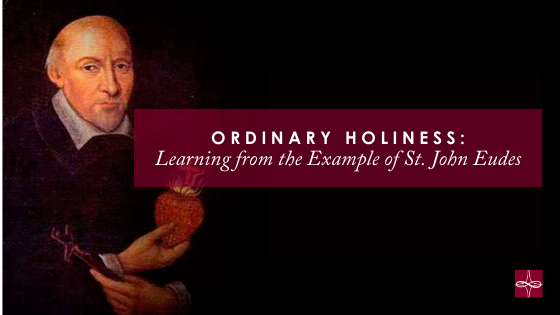
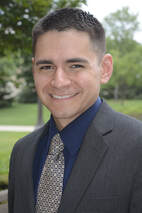
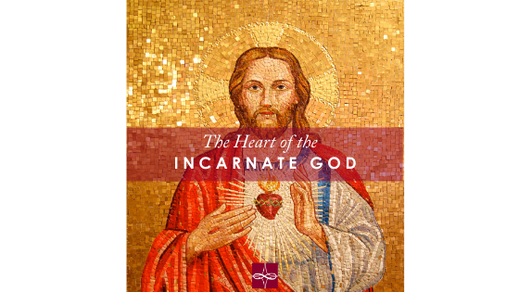
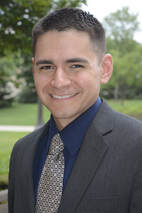
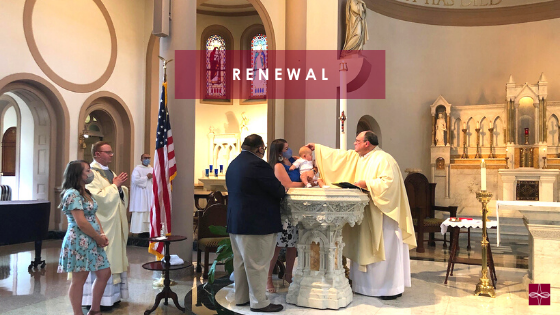


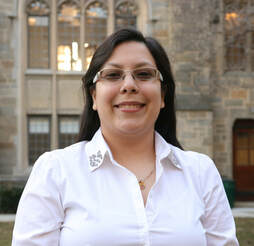


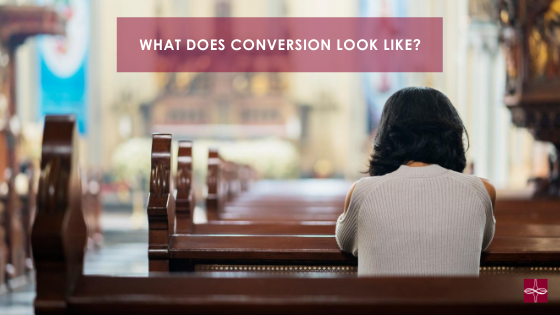

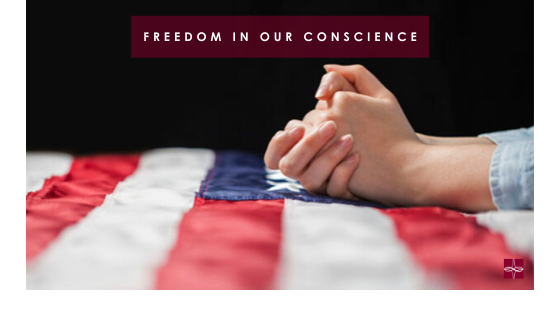

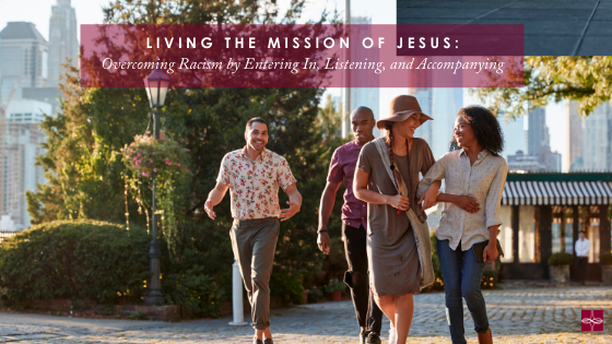

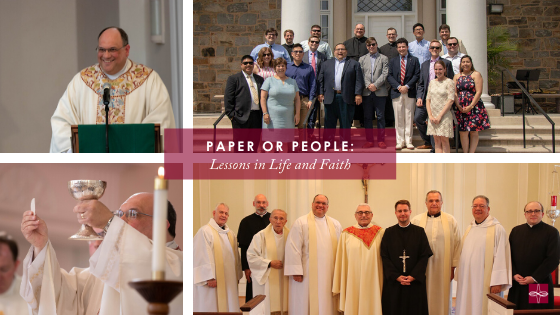
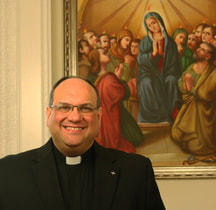
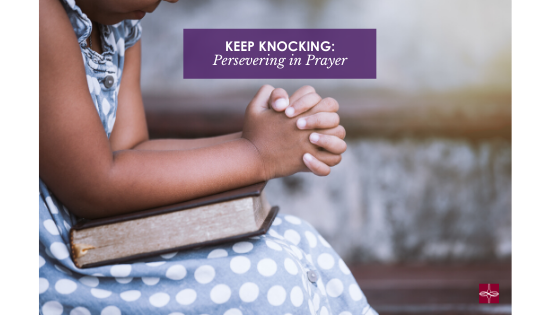

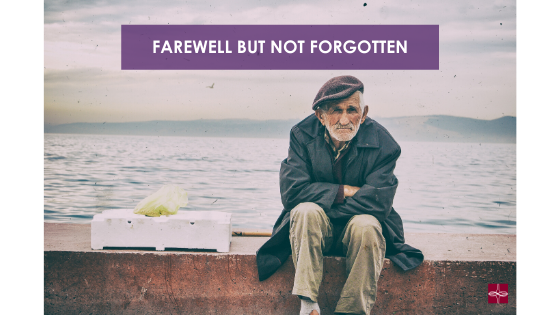

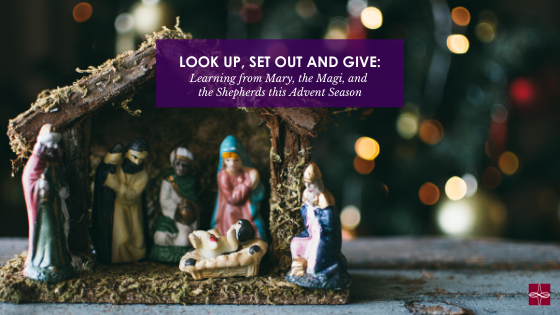
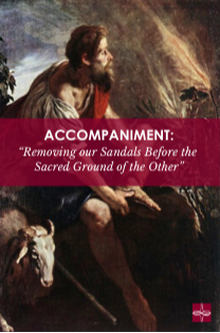
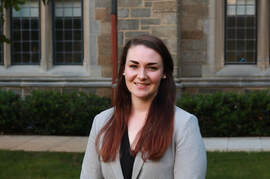
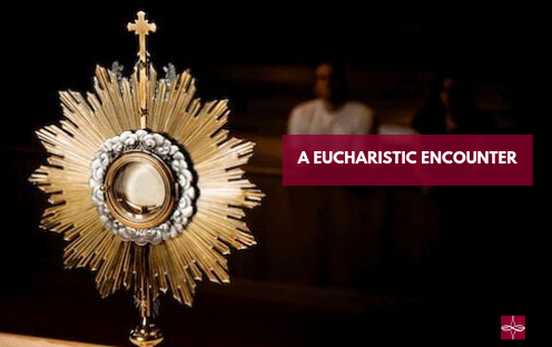

 RSS Feed
RSS Feed